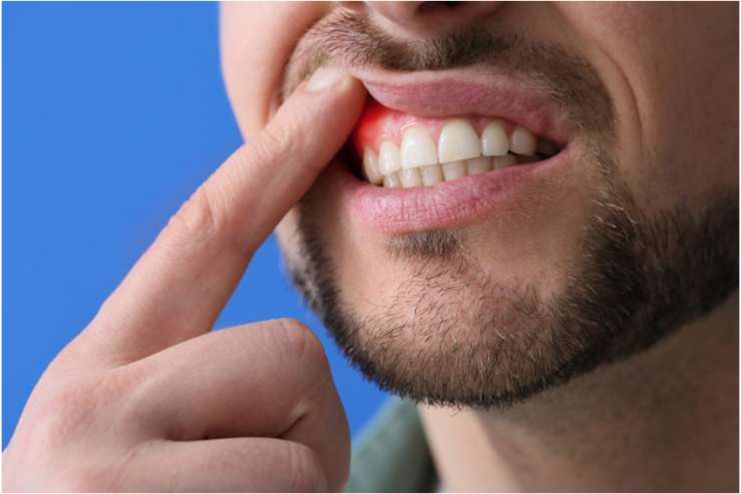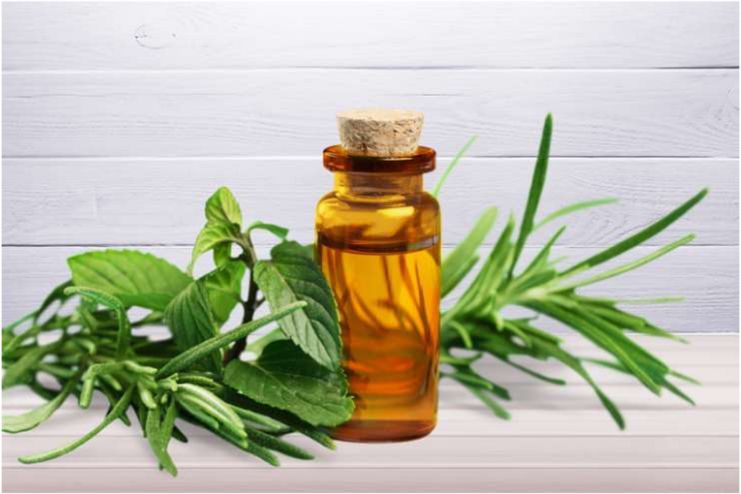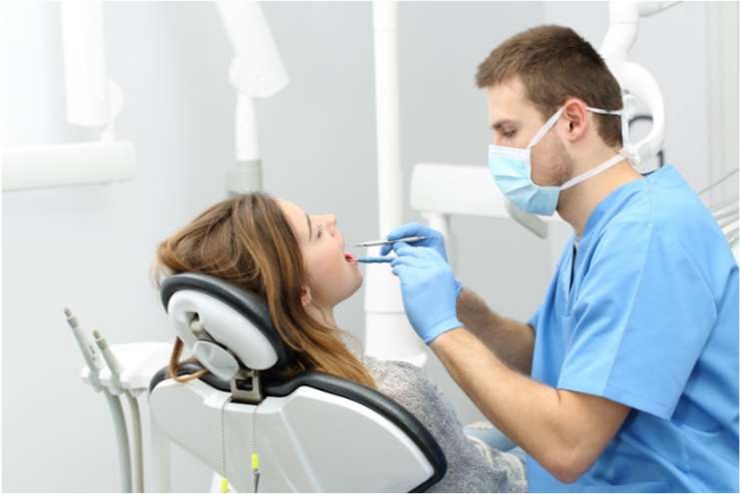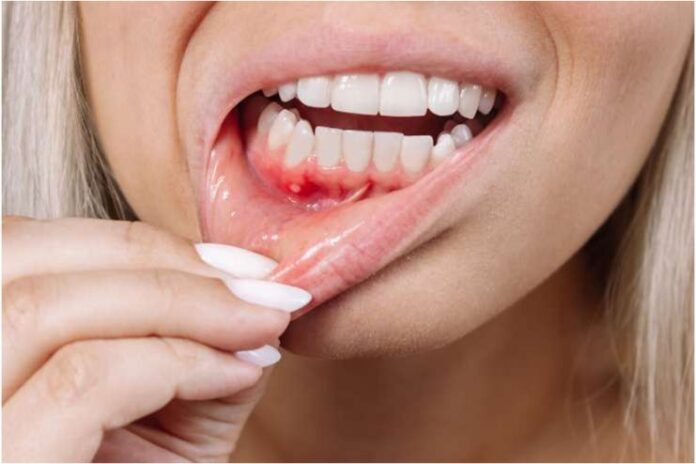Affiliate Disclaimer
Some links in this article are affiliate links. We may earn a small commission if you make a purchase through these links, at no extra cost to you. We only recommend products we find useful to our readersGum bleeding is a frequent but sometimes disregarded indicator of underlying dental problems. Even though occasional bleeding during brushing may seem harmless, it should never be ignored. Chronic gum bleeding may be a sign of gum disease, which can develop into serious problems if treatment is not received.
In addition to affecting the gums, this stage can cause tooth loss because the bone structure that supports your teeth deteriorates. Furthermore, researchers have linked untreated gum disease to diabetes and heart disease, among other major health issues. Thus, treating bleeding gums immediately is essential to preserve your general and dental health.
Read More: 10 Home Remedies For Periodontitis – Get Rid Of Pyorrhea
What Are Bleeding Gums?
Inadequate plaque removal results in bleeding gums. Plaque is full of germs that attack teeth and healthy tissues, thereby making them inflamed and bleed while brushing. This is the first stage of gum disease, gingivitis, which is usually painless.
Causes of Bleeding Gums

1. Oral hygiene:
You may be shocked to hear that bleeding gums can occasionally result from a brief neglect of usually excellent oral care. According to research, just one day without regular dental care can cause healthy gums to bleed and become unhealthy.
Improve your daily oral hygiene practices to prevent or stop bleeding. Brush for at least two minutes twice daily and floss daily to avoid plaque buildup, bleeding, and swollen gums.
2. Diet:
Certain components in processed foods can cause gum irritation and bleeding. A balanced diet of fruits, vegetables, and foods high in calcium, vitamins A, K, and C, as well as magnesium, is preferable to processed and sugary foods.
3. Brushing too Vigorously:
Excessive brushing does not improve tooth cleanliness; it increases the risk of gum recession and bleeding gums. When brushing your teeth, modify your brushing method and use a toothbrush with soft bristles.
4. Pregnancy:
About half of pregnant women have swollen, red, and sensitive gums that bleed when brushing or teeth flossing. This occurs because the body’s reaction to the bacteria that causes gum disease is changed by hormonal changes during pregnancy. To protect your gums and teeth, practice good dental hygiene throughout pregnancy by brushing your teeth twice a day with a fluoride toothpaste and flossing every day.
5. Wearing Incorrectly Fitted Dentures:
Gum bleeding may result from improperly fitting dentures that cause ulcers and scratching. It may be more common in people who don’t remove their dentures at night. Furthermore, brushing your teeth and keeping your dentures clean if you wear them to avoid gum inflammation and plaque accumulation is particularly crucial.
6. Medicines:
Some drugs may exacerbate gum bleeding or sensitivity. For instance, blood thinning drugs reduce the blood’s capacity to bind together and may raise the risk of bleeding, even near the gum line.
Other medications, including aspirin, birth control pills, NSAIDs (non-steroidal anti-inflammatory drugs), and several blood pressure medications, can also increase the risk of bleeding gums. You should disclose your new medications to your dentist if you have frequent gum bleeding.
7. Vaping or Smoking:
Smoking and vaping both raise your risk of developing oral health issues, such as bleeding and infected and sensitive gums. Dangerous germs trapped between teeth and the gum line can enter the bloodstream once gum bleeding begins, leading to additional oral health issues.
Consult your dentist or physician about quitting smoking or vaping if you are concerned about the impact these behaviors may have on your dental health.
8. Stress:
Living in constant stress and anxiety weakens your immune system, making it harder to prevent several health problems, including gum disease and bleeding gums.
Stress can cause inflammation and raise the risk of gum disease and tenderness. Inflammation might also damage your mouth’s delicate tissues, delaying the healing of bleeding gums. You can lower stress levels every time.
Read More: 6 Ways to Cure a Toothache with Cloves
Natural Remedies for Bleeding Gums
Several home treatments can reverse the consequences of gum disease. These consist of:
1. Rinse with Salt Water:

Gum disease can be reversed naturally with a saltwater rinse. Rinse your mouth several times daily with warm salt water as part of this treatment. In addition to lowering oral germs, saltwater helps to lessen gum irritation and inflammation. This may diminish periodontal disease symptoms, including poor breath and bleeding gums. Add one teaspoon of salt to one cup of warm water to create a saltwater rinse. Rinse your mouth several times a day with this solution.
2. Pulling with Coconut Oil:

Coconut oil has antibacterial and anti-inflammatory properties. It is also known to help with tension and headache relief, breath freshening, and teeth whitening. To perform a coconut oil pull, put one or two teaspoon of liquid coconut oil in your mouth and swirl it around for 20 to 30 seconds. After spitting it out, rinse your mouth with water. Brush your teeth and drink one full glass of water after this procedure.
Read More: Natural Remedies on How to Get Rid of Cavities
3. Tea Tree Oil:

Tea tree oil effectively treats periodontal disease because of its well-known antibacterial, antifungal, and anti-inflammatory qualities. It can also be used as a mouthwash by combining 1 teaspoon with 8 ounces of warm water and rinsing mouth with the mixture multiple times throughout the day. Cotton swab can also be used to apply it directly to the gums.
4. Vitamin C:

Vitamin C’s ability to fend off infection and reduce inflammation may benefit gum disease. It also aids in developing healthy gums and guards against additional harm. Taking vitamin C supplements or eating more vitamin C-rich foods, such as oranges, can enhance gum health.
Read More: 16 Home Remedies For Abscess Tooth Treatment Effectively
Symptoms Of Bleeding Gums?
You could have gingivitis and be unaware of it because its symptoms aren’t always evident in the early stages. As the illness progresses over time, you might experience:
- Persistent bad breath, which persists even after brushing.
- Easily bleeding gums, especially after brushing your teeth.
- Swelling, red gums.
- Sensitivity to foods that are hot or cold.
Professional Treatment For Bleeding Gums:
Controlling the infection and restoring healthy teeth and gums are the goals of gingivitis treatment. Your dentist or periodontist will meticulously clean your teeth to eliminate dangerous bacteria, tartar, and plaque. Other therapies for gingivitis include:
Scaling and Root Planing: This process goes deeper under your gums than a standard dental cleaning. Scaling eliminates bacteria and tartar. Planing smooths your teeth’s root surfaces, keeping microorganisms from adhering.
Antimicrobial Mouthwash: Using an antimicrobial mouthwash to rinse can aid in the destruction of bacteria that cause illness.
Dental Work Repair: If crowns, fillings, or bridges extend or don’t fit properly, your dentist may repair or remove them. Smoother surfaces are more straightforward to maintain.
When to Seek Professional Help

If your gum bleeding is persistent, it’s critical to get expert assistance immediately. Minor bleeding may occur sometimes and be normal, but persistent or regular bleeding, particularly during brushing or flossing, may be a sign of gum disease or other underlying problems.
Other important warning indicators must be addressed are swollen, red, or painful gums. Gums that are receding or peeling away from your teeth may be an indication of advanced gum disease, which requires prompt treatment to prevent further harm.
A gum disease can cause tooth loss and many other serious health issues. Therefore, early management is crucial to halting its spread.
Read More: 8 Working Home Remedies To Remove Tartar And Plaque From Teeth
FAQs:
- How to Stop Bleeding Gums After A Procedure?
After a dental procedure, the best way to halt bleeding gums is to bite down hard for 30 to 60 minutes while gently applying pressure to the bleeding area with a clean, moist gauze pad.
- Which Vitamin Deficiency Leads to Gum Disease?
Deficits in vitamin C, vitamin D, and vitamin B12 may contribute to gum disease by weakening the immune system, preventing tissue repair, and decreasing the body’s capacity to fight infections. This can result in bleeding and inflammation of the gums.
Conclusion
Maintaining general well-being requires taking charge of your gum health. Regular brushing and flossing of teeth are essential components of good dental hygiene, lowering the risk of bleeding gums and preventing gum disease. A balanced vitamin C, D, and B12 diet supports gum health.
You may also further safeguard your gums by abstaining from smoking and heavy alcohol use. Dentists must identify and treat gum disease early to resolve problems before they worsen.
Recall that bleeding gums are a warning indication from your body that you should not disregard. Timely management is essential to maintaining the health of your gums, regardless of the cause—poor dental hygiene or an underlying medical problem.
-
Jan 2018Written by Sumana Maheswari
-
Feb 2025Edited by Ankita Sethy
References
- https://my.clevelandclinic.org/health/symptoms/24908-bleeding-gums
- https://medlineplus.gov/ency/article/003062.htm
- https://www.nidcr.nih.gov/health-info/oral-hygiene
- https://essenmacherdental.com/natural-home-remedies-to-reverse-gum-disease
- https://www.mayoclinic.org/diseases-conditions/gingivitis/symptoms-causes/syc-20354453
- https://my.clevelandclinic.org/health/diseases/10950-gingivitis-and-periodontal-disease-gum-disease
- https://ca.crest.com/en-ca/oral-care-tips/gum-health/bleeding-gums-causes-treatments-prevention
In this Article

















